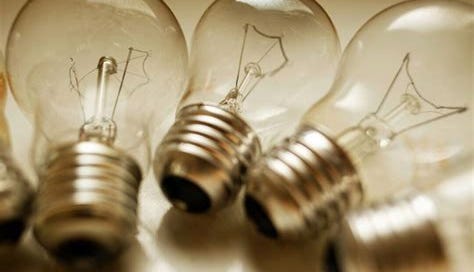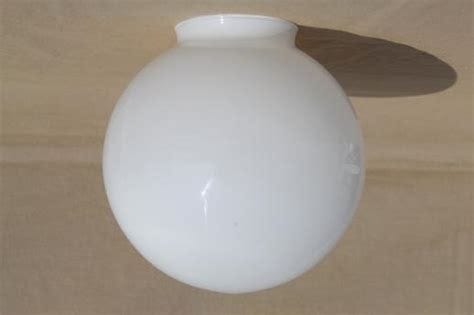This is another of my groundbreaking articles.
Today, G. E. Griffin posted,
“As of August 1, the Energy Department will fully enforce new efficiency regulations that the old incandescent bulbs can’t meet, effectively prohibiting their retail sale. Over half the country still appears to be using mostly incandescent lighting.”
You can say that this is “only” another way to push the fraud of “climate change,” which it certainly is, but that’s far from the end of it.
Last August, I posted two articles about how light can be used for killing you:
https://rayhorvaththesource.substack.com/p/the-infernal-light
https://rayhorvaththesource.substack.com/p/the-infernal-light-part-two
What’s wrong with LEDs?
LEDs can be used for delivering subliminal pulses of light (and an accordingly fluctuating electromagnetic field) that affect, or even determine, human health, stamina, thoughts, mood, and perhaps even deliver “messages” as a form of extremely rapid Morse code, traveling through the electric grid nearly at the speed of light:
https://mrelectric.com/blog/how-fast-does-electricity-travel
The electric grid can deliver many times more powerful magnetic pulses, so what’s the deal with LEDs?
According to The Scientific American, LEDs are bothersome to begin with, even if malfeasance is not present:
“Scientists used to think we could see no more than about 90 flashes of light a second but now we know it’s more like 2,000 because the eyes move so rapidly when we change gaze from one point to another. During the eye movement, the flicker of light creates a pattern that we can see. And this has some surprising consequences for our health thanks to the way some types of lighting can affect us. In particular, it could discourage people from using more energy-saving LED lightbulbs.”
Theoretically, the flicker is planned to be mitigated by regulatory standards:
https://standards.ieee.org/ieee/1789/4479/
Well, there are no active regulations, and you know what that means. And don’t bother guessing if they were enforced, if they existed.
Use of LEDs for human programming
How fast can a LED blink? Here is a taste of it:
https://forum.arduino.cc/t/how-fast-can-you-blink-an-led-theoretical-fastest-speed/913057/2
“The arduino UNO, nano, mini, (ATMEGA328) when connected to 5V, has a clock of 16 Mhz (16,000,000 Hz).
It has a cycle of 62.5 peak seconds or 0.0625 microseconds.”
A second contains a million microseconds, which you have to multiply by roughly 25, so this particular LED can blink 25 million times a second. That can surely opens up a lot of room for conditioning people, especially when combined with other methods of manipulating them, including, but not limited to wireless signals.
Dr. Ana Maria Mihalcea published the following only a few hours after my current one. It shows how hydrogels can be applied in the programming interface from microwaves or from stimuli from the visible spectrum to humans:
Light can activate graphene oxide:
https://www.civilianintelligencenetwork.ca/2023/07/09/phonons-key-to-harvesting-consciousness/
What can you do to limit the damages?
Use a translucent shade that fully covers the LED. No leaks! Halogens might also be an option, although their spectrum is not as natural as incandescent, and depending on the type, they need transformers that emit EMF.






I ‘suffer’ from insomnia. There’s a reason the word “suffer” is in quotes; it doesn’t feel like a burden to me. It is rather thinking time. That’s not to say that I don’t think sleep is critical for wellbeing. And so it was that I went to my doctor (years ago when I still had naive faith in their ability to do more than cross reference symptom -> treatment protocol).
I am convinced that the advent of LED lighting, smartphones, tablets and large, widescreen TVs, all encroaching into all of our lives and into the time shortly before normal sleep hours has an effect on sleep.
Serotonin is secreted by the pineal gland that is itself controlled according to the circadian rhythm, the sleep/wake cycle. I am playing somewhat fast and loose here with the medical definition because I am not a medical expert. In anything.
Seems that neither was my doctor.
All animals (et al) sleep and the normal pattern is to do so at night. The trigger is lack of sunlight. Humans have uniquely circumvented this natural trigger by creating artificial light beyond sunset. But happily the effect of extending waking time into late evening beyond sunset is not something that has necessarily brought with it any serious health issues. Early illumination was by fire, subsequently oil lamps, candles and gas lights etc. Later incandescent bulbs became a thing with the advent of electricity. All these light sources had a spectrum in common, wavelengths largely outside of the blue light frequencies. And this is where the issue with the eye -> brain -> pineal gland -> serotonin secretion-> circadian rhythm issues arise.
LED, and other light sources, are a relatively recent development. They have a large component of light falling within the blue light wavelength of the spectrum.
My doctor was completely ignorant of the phenomenon. My optometrist on the other hand was extremely interested and made, at no cost to me, prescription glasses with an orange filter to eliminate the transmission of light in the troubling wavelength. None of this is unknown science, it’s been understood for a long time and is uncontested.
Whilst I like the thinking time at stupid o’clock that is not to say that I don’t believe that there are health implications. Sleep is far more important than many of us appreciate. It is key to cell regeneration and mental health, among many, many other positive physiological benefits.
My apartment complex forced this on everyone in 2017. They even changed the outlets in the bathroom so we could not put in our own bulbs. An Energy conservation grant. The parking lot lights made it very hard to sleep. I bought lamps so I didn’t have to use the “ new& improved “lighting.
It was a hud housing apartment. I’ve since moved out , thankfully.